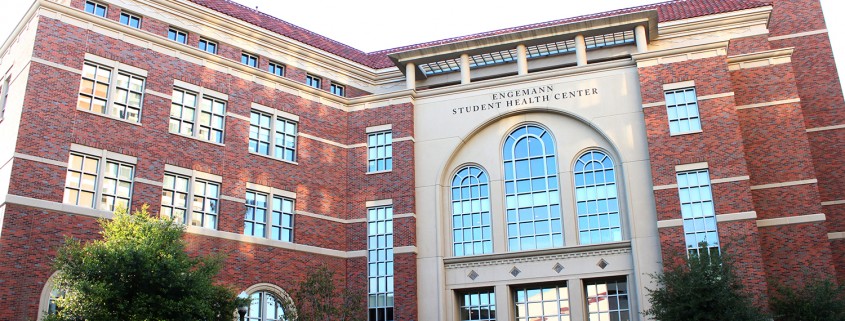Health Center expands counseling staff
The counseling center at the Engemann Student Health Center added six new full-time staff members this semester. This initiative, which began after meetings between President C.L. Max Nikias, Provost Michael Quick and Undergraduate Student Government last semester, will decrease waiting times for students seeking counseling.
Hannah Nguyen, director of USG’s Academic Culture Assembly and an organizer of Health Awareness Month, said that this is the first step in the right direction.
“It’s a wonderful milestone for mental health on campus,” Nguyen said. “The way the counseling center works is getting a little out of hand.”
USG President Rini Sampath, who has placed this issue at the forefront of USG’s agenda, mentioned that some students had to be transferred to counseling centers in other areas.
“If a student were to call the student counseling center and ask for an appointment, they would have to wait several weeks for that appointment to actually take place,” Sampath said. “These students were being essentially outsourced to these services Downtown and in other areas, and some of them actually said that it increased their feeling of anxiety and stress to actually have to go somewhere else.”
Christine Hasrouni, USG director of wellness affairs, discussed how before this recent addition, the total number of full-time staff members — after combining counselors’ part-time hours and full-time hours — totaled 17, a small number for the nearly 43,000 students attending USC. Hasrouni added that this negative assessment of USC’s mental health services is quite impartial.
“Members of different universities across the nation, including UCLA, came to our campus and reviewed our counseling center and, overwhelmingly, all of them said, ‘There are not enough counselors,’” Hasrouni said. “They did interviews with the staff and students, and I was one of the people they interviewed, so after that they took it to higher administration and agreed … We need more counselors.”
Hasrouni hopes that this new addition will lead to a gradual increase in full-time staff in upcoming years. However, she also stated that increasing staff at Engemann wouldn’t necessarily benefit all groups of students.
“One of the problems is that counseling and therapy are very western ideas in general, and not everyone feels comfortable seeing a therapist, and so we have to look at different routes of how we deal with mental health,” Hasrouni said.
One solution Hasrouni mentioned is to allocate counselors at the University’s various cultural centers, in order to offer students staff members that understand specific cultural issues. Sampath also stressed the importance of dealing with cultural taboos.
“What about access for marginalized communities that have a stigma around mental illness?” Sampath said. “For example, Asian Pacific Islander communities, unfortunately, do not seek out mental health because there is a stigma around mental health, so one thing we are hoping to do is encourage the administration to implement counselors at the resource centers.”
Furthermore, Sampath is hoping that in the future, counselors will be available in residence halls to shorten distances and facilitate access for students.
“I am interested to see in moving beyond conversations of counselors at the counseling center into conversations about what does it mean to take care of our students,” Sampath said.
Sampath said she wants USC to stop worrying about regulations and more about students’ health.
“There is one phrase that I really liked that we discussed at the Pac-12 summit this weekend: ‘moving beyond compliance and creating a culture of care,’” Sampath said. “Our university and administrators need to know that it is not just about complying with the rules and regulations of the federal government and American Disabilities Act or whatever it might be, but really asking, ‘Are our students happy and comfortable, or are they excluded from the conversation?’”
Viewing the issue with a practical outlook, Hasrouni said that a major strategy would be to better publicize the resources that already exist.
“There are so many things on campus dealing with mental health that students don’t know about,” Hasrouni said. “For example, we have the Office of Wellness and Health Promotion. They have wellness advocates, which are students that go through training on different issues like mental health, sexual health and nutrition, and they hold office hours and are meant for peer help … And in that office they also have massage chairs and free coffee.”


—-a stigma around mental illness?
Only if you are willing to play that mind game.
I am not.